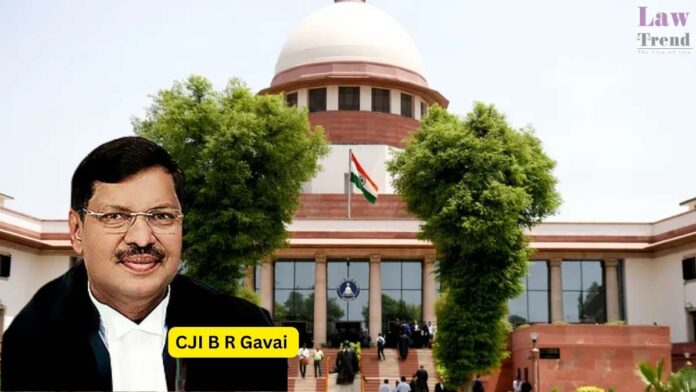Chief Justice of India B.R. Gavai on Thursday cautioned that judicial activism must not cross into “judicial terrorism” or “judicial adventurism,” during the Supreme Court’s ongoing hearing on a Presidential Reference concerning timelines for governors and the president to act on bills passed by state legislatures.
The remark came in response to Solicitor General Tushar Mehta, representing the Centre, who said that the experience of elected representatives should not be undermined. “We never said anything about the elected people. I have always said that judicial activism should never become judicial terrorism or judicial adventurism,” CJI Gavai observed.
The Constitution Bench, also comprising Justices Surya Kant, Vikram Nath, P.S. Narasimha, and A.S. Chandurkar, is hearing the matter for the third consecutive day.
Centre’s Submissions
Mehta resumed his arguments by referring to past Supreme Court verdicts on the powers of governors, noting that “withholding assent” under Article 200 of the Constitution is a complete and independent constitutional function. He said today’s voters directly question elected leaders, unlike 20–25 years ago, and “cannot be taken for a ride.”
At the outset, he also said he looked forward to senior advocate Kapil Sibal’s submissions, given his long experience in governance and public life.
Background of the Reference
The hearing stems from a May 2025 Presidential Reference under Article 143(1), in which President Droupadi Murmu sought the Court’s opinion on whether judicial orders could set deadlines for the president when dealing with bills referred by governors under Articles 200 and 201. The five-page reference poses 14 questions on the powers of the president and governors in such matters.
On Wednesday, the bench had clarified that a governor cannot refer a bill to the president for consideration a second time after it has been returned by the assembly and re-passed.
Centre’s Written Stand
In its written submission, the Union government argued that fixed timelines would amount to one organ of government assuming powers not vested in it by the Constitution, potentially causing “constitutional disorder.”
The issue gained prominence after the Court, in an April 8 order on Tamil Nadu’s challenge regarding governor’s powers, for the first time directed that the president decide on bills reserved by governors within three months of receiving the reference.




